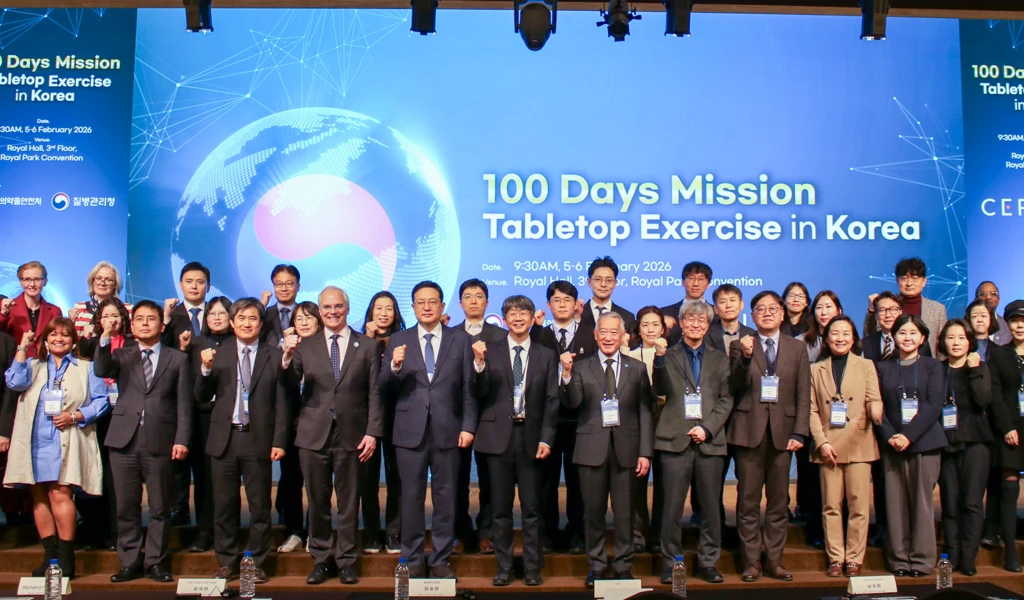OXFORD, UK/OSLO, May 23 – University of Oxford scientists are launching new computer simulations that will model how we can strengthen the world’s response to some of the viruses most likely to cause the next pandemic.
Their work, known as the ‘PREpare using Simulated Trial Optimisation (PRESTO)’ research project, will generate important insights for vaccine developers and public health officials on what vaccine clinical trial designs could help stop the spread of an emerging outbreak.
With up to US $2.4 million funding from CEPI, researchers at the University of Oxford’s Pandemic Sciences Institute will simulate real-life scenarios of deadly disease outbreaks in order to model how possible vaccine clinical trials could run and what outcomes they could produce. The infectious threats that will be tested are Nipah, Chikungunya, Lassa, Rift Valley fever, Ebola and related viruses, Coronaviruses and a new or as-yet-identified ‘Disease X’. These diseases are prioritised by CEPI and recognised on the WHO R&D Blueprint.
“When a new outbreak strikes, we won’t have time to get all the information we need to tell us how best to conduct pivotal clinical trials that test the efficacy or effectiveness of promising epidemic or pandemic vaccines” said Dr Richard Hatchett, CEO of the Coalition for Epidemic Preparedness Innovations (CEPI). “But mathematical modelling can give us a headstart by forecasting how a worrisome virus might spread and what we need to do to respond. Having PRESTO’s optimal study designs readily available in an outbreak will allow health officials to make quick, informed decisions on the best steps to take for more efficient vaccine testing and rapid evidence generation, thereby creating a faster outbreak response.”
Data from existing CEPI-funded research will be fed into the computer model alongside evidence from previous outbreaks to create hypothetical scenarios looking at how a selected virus could spread, who it could impact and its potential severity.
Findings from these scenarios will be used to produce analysis sheets that rank the suitability of different clinical trial options measuring the efficacy or real-world effectiveness of vaccines against each selected infectious disease. For example, the modelling data could recommend that health officials conduct either a randomised controlled trial or a ring vaccination trial in response to an escalating outbreak. The analysis sheets will also suggest the optimal number of participants to enroll in the preferred trial design and the likely time needed to run the study to obtain the necessary data.
Having pre-established clinical trial frameworks in place ahead of an outbreak is key to executing the 100 Days Mission. The goal, spearheaded by CEPI and embraced by G7 and G20 nations, seeks to develop vaccines in just over three months from identification of a Disease X. This is around a third of the time it took to develop COVID-19 vaccines and could help stop a pandemic threat in its tracks.
Professor Christophe Fraser, Professor of Infectious Disease Epidemiology at the Pandemic Sciences Institute, University of Oxford, said: “Ensuring vaccines can be robustly tested at speed is critical if we are to better respond to future pandemic threats. With every day of delay potentially costing many lives, and with the recent experience from COVID-19, we now have an opportunity to develop improved vaccine clinical trial designs so we can hit the ground running in a disease outbreak.
“The PRESTO project will bring together mathematical modellers, ethicists, regulators, vaccine manufacturers and field teams to study what works with different pathogens in different settings.
“Our aim isn't to find the theoretical abstract best solution, but to develop models that allow decision-makers to explore the impact of the inevitable trade-offs that they will have to make in different settings. The aim in all trials is to test that vaccines are safe and effective, but there are many ways of finding people to recruit in a trial, and doing so well is particularly challenging given the fast-moving nature of the early stages of a pandemic.”
PRESTO is a three-year research project. The team will first model and develop clinical trial design recommendations for Nipah, one of the deadliest diseases known to infect humans, before moving their efforts to focus on the other infectious diseases prioritised by CEPI.
In the event of an outbreak of a new Disease X, the University of Oxford will direct their computational modelling efforts to focus on the emerging pathogen. In such a scenario, the team will make their clinical trial modelling data rapidly available to help quickly inform public health response efforts.
The Oxford team will make its computer software available on an open-source platform. The project will be developed in a modular manner to allow external researchers to run their own tests on the model while also providing them with the opportunity to update the tool with new data as and when needed so that it remains accurate for years to come.
The trial simulation exercises form part of CEPI’s US $80m strategic partnership with the University of Oxford to accelerate development of vaccines against diseases with pandemic potential.
ENDS
Notes to Editors
- Digital modelling was instrumental in informing our understanding of COVID-19 and guiding the global pandemic response. Epidemiologists at the University of Oxford and others at academic institutions and organisations worldwide worked with computer simulation experts to test their hypotheses on important areas like rate of transmission, contract tracing and clinical trial site selection in online hypothetical scenarios.
- Here, scientists combined known COVID-19 data with educated assumptions about how the disease might spread. They then simulated interactions of different potential outcomes to provide scientific evidence to COVID-19 vaccine developers and government officials on what path the then-emerging outbreak could take and the action measures needed to control the spread.
- Computer simulations have also been used in response to the 2003 SARS outbreak, 2009 H1N1 pandemic, the 2013-2016 West Africa Ebola epidemic, and as part of the planning for routine annual vaccination programmes.
About CEPI
CEPI was launched in 2017 as an innovative partnership between public, private, philanthropic and civil organisations. Its mission is to accelerate the development of vaccines and other biologic countermeasures against epidemic and pandemic threats so they can be accessible to all people in need. CEPI has supported the development of more than 50 vaccine candidates or platform technologies against multiple known high-risk pathogens or a future Disease X. Central to CEPI’s pandemic-beating five-year plan for 2022-2026 is the ‘100 Days Mission’ to compress the time taken to develop safe, effective, globally accessible vaccines against new threats to just 100 days.
About the Pandemic Sciences Institute
The Pandemic Sciences Institute (PSI) is an interdisciplinary research institute at the University of Oxford dedicated to confronting the challenge of epidemic and pandemic infectious diseases. PSI works with academia, industry and public health organisations across the world to create science-led innovations, accelerate understanding, and develop new diagnostics, treatments, vaccines and disease control tools. Launched in 2022, PSI brings together researchers from across all four divisions of the University of Oxford: Medical Sciences; Mathematical, Physical and Life Sciences; Social Sciences; and Humanities. PSI has 200 core research and support staff, with an additional 400 or more affiliated staff and students, based at institutes and centres across the University. PSI is hosted by the Nuffield Department of Medicine. Visit our website and Follow us on X (formerly Twitter).



.webp)
